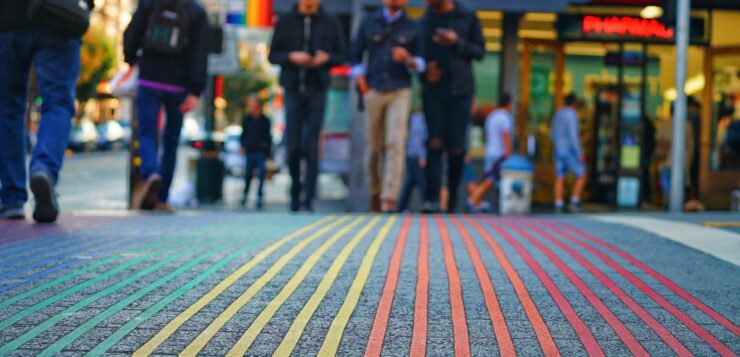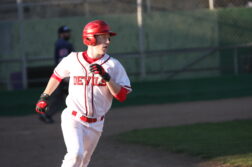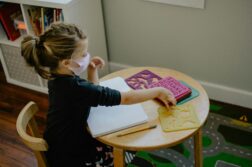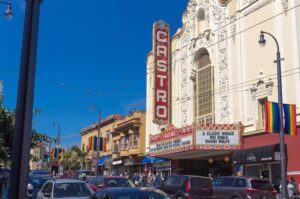
In 1980 I found myself, not quite 25 years old, yet another refugee descending upon San Francisco, the ‘City by the Bay,’ to be an out gay man amongst my friends. My friend Raul was from Fresno, part of California’s Central Valley; David was from Spokane, Washington. And I, from Miami. At the time, I had newly-out friends from Ecuador, France, India, and the Philippines.
Later that year, the life-shaking trauma began: a disaster of human life that succumbed to an unknown disease that scientists first called GRID (Gay Related Immune Deficiency). Several months before the disease was widespread, my roommate, Doug, was stricken with several giant genital herpes in his rear end. He couldn’t get out of bed. He showed it to me, and I was sickened by the pancake-size sore that covered his anus.
The dawn of 1981 brought the birth of AIDS in the United States. I have conjectured that Doug was Patient Two or Three. San Francisco’s epidemic tidal wave began just a few short years after Dianne Feinstein heard gunshots in San Francisco’s City Hall, and then found Mayor George Moscone and Supervisor Harvey Milk with a spatter of gunshot wounds that killed them both. It was time for my coming out.
Packed in the kitchen of a flat in the Mission neighborhood of San Francisco, I stood next to Raul, who was cooking pinto beans and rice. He held up the new product Beano, explaining its ability to remove gas from beans to reduce the flatulence people have after eating them. After adding a few drops to the beans, I watched the giant pot in awe as the beans percolated rapidly, emitting hundreds of tiny bubbles that rose to the pot’s rim.
When the beans settled down, I looked at Raul while he was stirring them, and told him that I was flying to New York that night for my cousin’s wedding. His partner, David, jumped from the table. The two, all too familiar with my family background, urged me simultaneously to come out to them. They mentioned Harvey Milk, the slain San Francisco supervisor who told everyone that the more people find out that gay people exist, the more accepted they’ll be.
After landing the next day in Newark, I found myself in kind of a stupor; not on drugs, as was the case when I ran away from Miami, but from nightly partying at an always-packed Alfie’s, not long after Harvey Milk had his victory party for having been elected onto the San Francisco’s Board of Supervisors.
I attended my cousin’s wedding with my parents and older brother that afternoon, and later that evening— my brother and I hung out in my parents’ hotel room, and discussing the uniqueness of the wedding’s chamber music. Despite the wedding being a happy event for the newlyweds, the music offered a staid atmosphere; And we both agreed that the event was downright boring, and laughed all about it.
As the conversation moved on to food, my mind ran wild with thoughts of the sweaty atmosphere of Alfie’s dance floor and the flashing reflection of a light spinning from the mirrored disco ball whirling above. I squinted from thoughts of the flashing lights as if I were still at the bar— a long-term symptom of being exposed to a dance floor lit by blinking lights— in what was a nightly routine for over a year in an assortment of Castro and South of Market bars until closing time I began to fidget, and was keenly aware that it was time to come out. Sitting on the bed beside my family— my knees moved relentlessly— I interrupted the conversation of the wedding’s cuisine and blurted out “I’m gay!”
The family turned to stone, followed by a long moment of silence and shock.
My mother soon gulped and exclaimed, “No you’re not.” She repeated it several times waving her finger, looking seriously at my father whose shiny, black and wavy hair slicked back with Brylcreem lit up with an angel-like glow.
Without notice, my brother who was sitting on the other side of me moaned, “Why did you wait so long?” At the same time, my mother explained that my father went through the same experience, and grew out of it. He was a World War II bombardier who purportedly fought off homosexuality.
“Did he really?” I asked.
My father nodded his head, not saying a word.
The conversation abruptly ended, as it was late. The wedding was a lengthy affair with a lot of food and wine, and we were all exhausted and went to bed..
The next day, I got back to San Francisco and, with the attempt to extinguish what happened, started increasing the number of hours I wandered around the city at night, visiting after-hours clubs and roaming the streets looking for love in the wrong places. The days after were exhausting, fighting off the frequent urges to collapse inside a cubicle in one of the financial district’s skyscrapers from not even four hours of sleep.
My mother’s pleas for me to be straight led me to a Jewish girl whose family was from Baghdad. She was fascinating and fun, but I was not attracted to her. After our weekend day trips, I’d accompany her home in the Marina district of the city, and then I hop on the 22 Fillmore bus, transfer to the 8 Haight line, ride up and down steep hills of the city to my flat right smack in the middle of Ashbury, one block away from Haight Street.
Sadly, by that time, Alfie’s closed. Disco was declared dead during the Ronald Reagan era. I stopped going to the discos, settling into the leather scene without the leather. Poorly lit bars playing punk music became a vital part of my life. Most came with pool tables and pinball machines. I became adept at both games, often mingling with the crowd to find a mate or two.
The gay belts at the time were Polk Street and the Castro. The mix of friends I’d make ranged from meticulously dressed drag queens in the Tenderloin near Polk Street to clean-cut masculine men in the Castro, and everything in between.
In the meantime, my mother phoned me every day at work, persistently urging me not to turn my sexuality into a life of loneliness and desperation. “Gay people,” she said, with an Anita Bryant-like warning, “have difficult lives because they are not considered normal.” Additionally, she insisted that it “was just a phase.” My family’s reaction was so bad, I retracted my claim, letting them know that I was dating a Jewish girl. Though my mother was filled with angst, she accepted me once again as a straight boy.
“Phase,” I thought at the time, “no way!” I was starting to embrace the San Francisco pride that surrounded me. I now had many friends, friends who pleaded with me to tell my family that I was gay. Hmmm, I thought, Harvey Milk versus my mother, two Jewish people locked in views that set me off in a ball of confusion. I had never felt so uncomfortable about the situation I found myself in.
The phone rang in my cubicle one morning at work. It was my other brother, not the one who was with me in New York. I had one more “coming out;” he was the middle child, and a Miami Beach oncology doctor. He calmly let me know that my mother was in a bad car accident near Key Biscayne, and she was in the hospital. She also had terminal brain cancer. Her accident was caused by not being able to see peripherally. Unfortunately, she died soon after, before I was able to properly come out again.
A year after she died, a friend of hers traveled to San Francisco to inform me that my mother was working through her feelings about my sexuality. Her friend’s visit was a show of support that I had never imagined. She was like a messenger from above, traveling over 1000 miles to let me know that the coming out process takes time, and can resolve itself if one is patient.
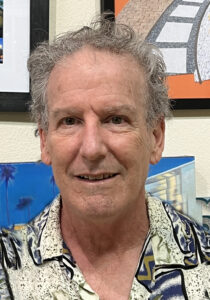 Matthew Bamberg is a writer, photographer, and educator based in Palm Springs, CA with a master’s degree in creative arts education. In the early 2000s, he wrote feature articles for the Desert Sun and Palm Springs Life about popular culture, Palm Springs modernism, and the column “One Tank Trips.” He is the author of a dozen books about digital photography, including Digital Art Photography for Dummies. Bamberg currently teaches education courses focused on critical thinking and writes articles about current cultural trends in writing, education, and photography.
Matthew Bamberg is a writer, photographer, and educator based in Palm Springs, CA with a master’s degree in creative arts education. In the early 2000s, he wrote feature articles for the Desert Sun and Palm Springs Life about popular culture, Palm Springs modernism, and the column “One Tank Trips.” He is the author of a dozen books about digital photography, including Digital Art Photography for Dummies. Bamberg currently teaches education courses focused on critical thinking and writes articles about current cultural trends in writing, education, and photography.


